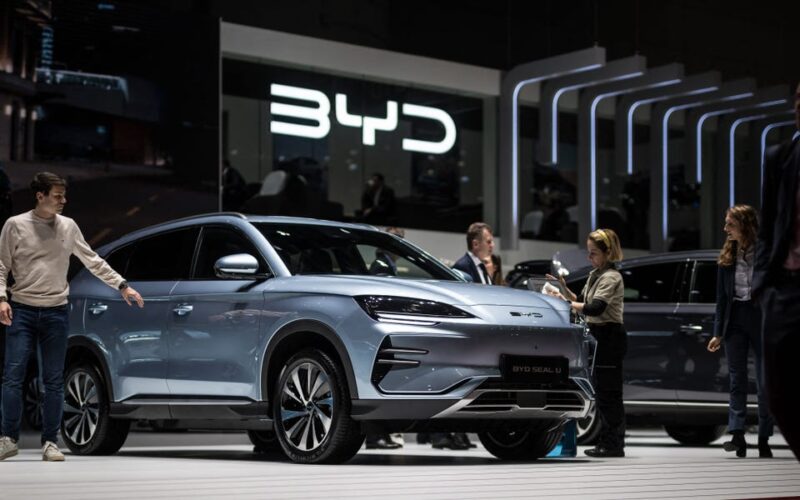China’s biggest EV manufacturer, BYD, sold nearly 1 million electric and hybrid cars in the second quarter of the year, Bloomberg calculated. During the same period, Nio said it delivered over 57,000 vehicles — a 144% year-over-year rise.
Geely Automotive-owned Zeekr, which listed in the US in May, had a record June with over 20,000 deliveries — an 89% year-on-year increase.
Despite concerns about tariffs from the US and European Union, sales for the three producers were boosted by price cuts, the introduction of cheaper models, and Chinese EV demand from Russia, where Western competitors exited.
These numbers may make Tesla, and its once-dismissive-of-Chinese-companies CEO, nervous. The American EV giant announces its second-quarter deliveries on Tuesday. First-quarter numbers showed Tesla was hit by waning EV demand.
Analysts expect a 6% decline in Tesla’s total deliveries from April through June, Reuters reported ahead of the official numbers.
Tesla has made big moves to lure back customers and reassure investors this year.
At the end of the first quarter, CEO Elon Musk entered the EV price war by slashing prices on select Tesla models. In the company’s first-quarter earnings call, Tesla also announced a much-awaited cheaper EV. In late May, Tesla even offered Chinese customers a chance to tour its Fremont, California factory if they bought a car this summer.
“The fundamentals for Tesla are in a tricky position right now, and we generally expect negative revisions,” Barclays analyst Dan Levy told CNBC last month. One of the company’s biggest challenges is flat volume growth, he said.
Levy predicted an 11% drop in June-quarter deliveries, below analyst estimates.
The bullish case for Tesla
Despite Chinese EV companies’ strength, one analyst is confident that Tesla is set for a rebound amid growth in China and the Robotaxi’s unveiling, planned for August.
“We have seen some signs of stabilization in pricing for Tesla over the past few months as it appears the lion’s share of the price cuts are now in the rear-view mirror,” Wedbush analyst Dan Ives wrote in a note on Friday.
Ives, a Tesla bull, said that demand in key region China is showing signs of improving as customers realize that no more price cuts are coming.
Moreover, analysts have long said some American EV companies’ real value isn’t the cars themselves, but rather technology that could be sold to other customers.
“We continue to believe that Tesla is more of an AI and robotics play than a traditional car company,” Ives wrote on Friday.
The same is true for American competitor Rivian, which recently announced a $5 billion investment from Volkswagen .
Software is one of Rivian’s strengths, Goldman Sachs analysts noted in January — “a key part of the value proposition and monetization opportunity for Rivian.”
Source link
lol

